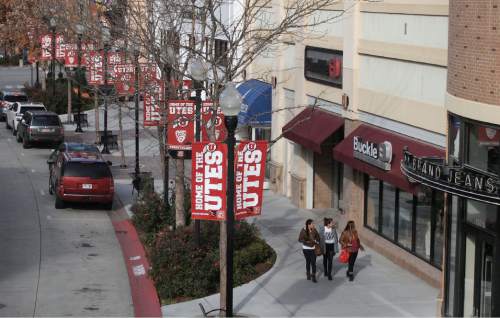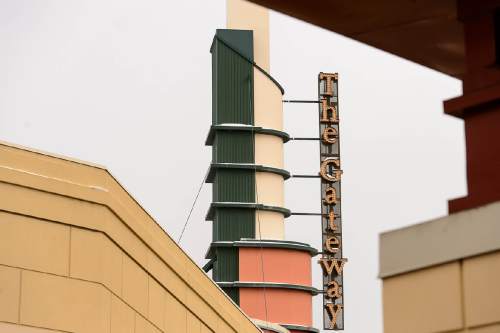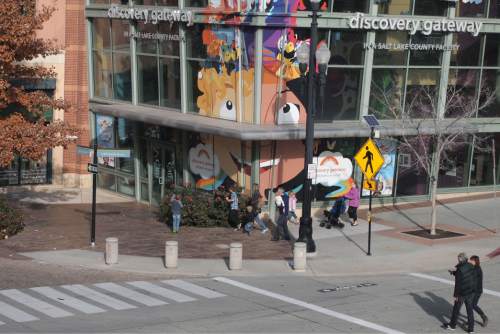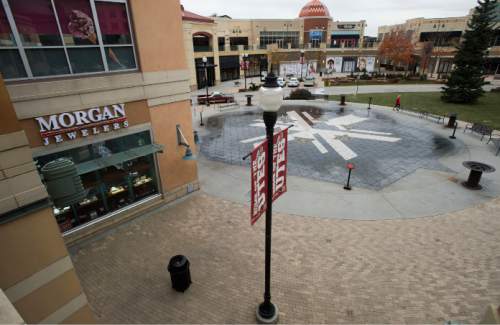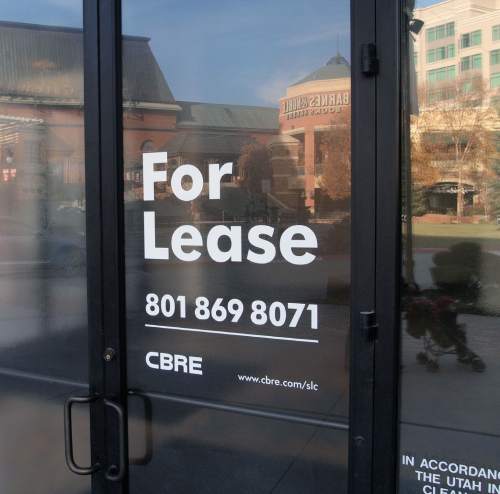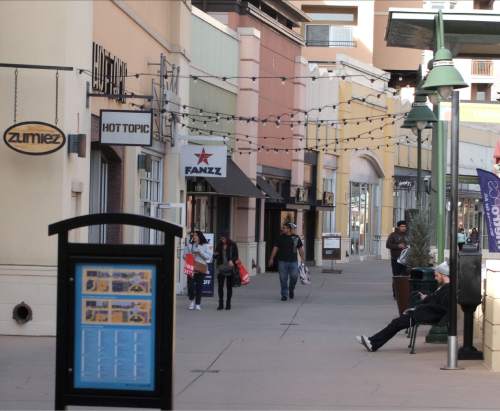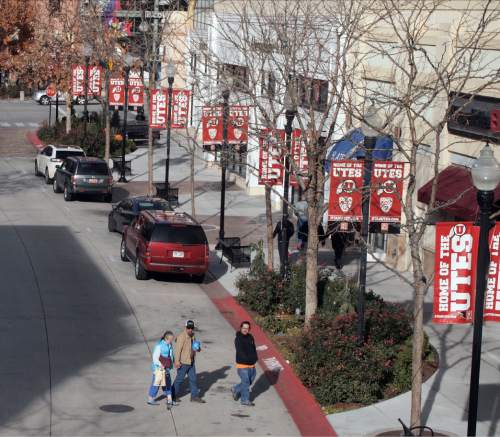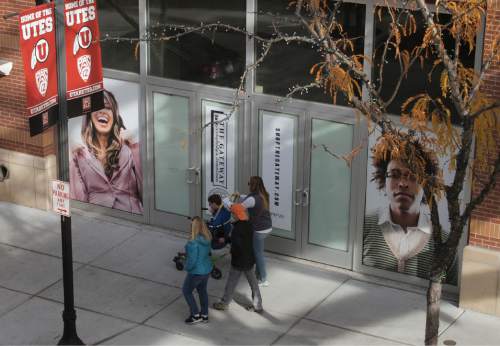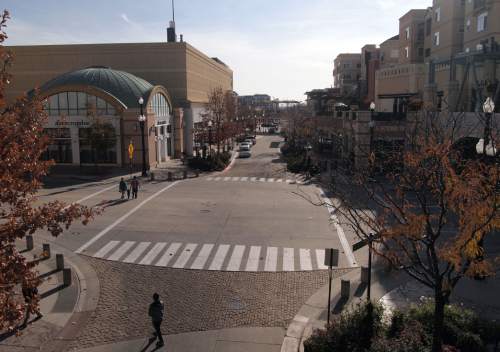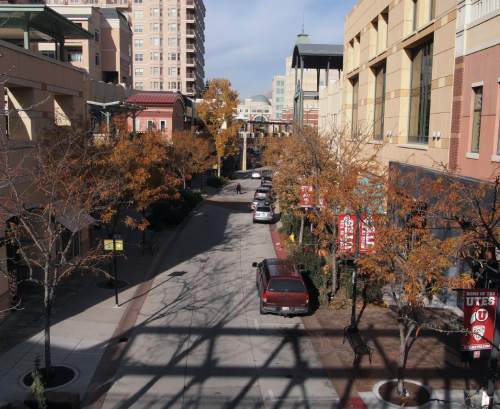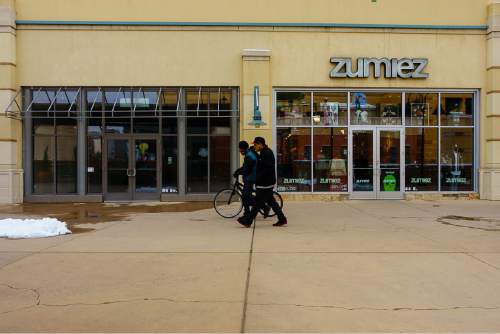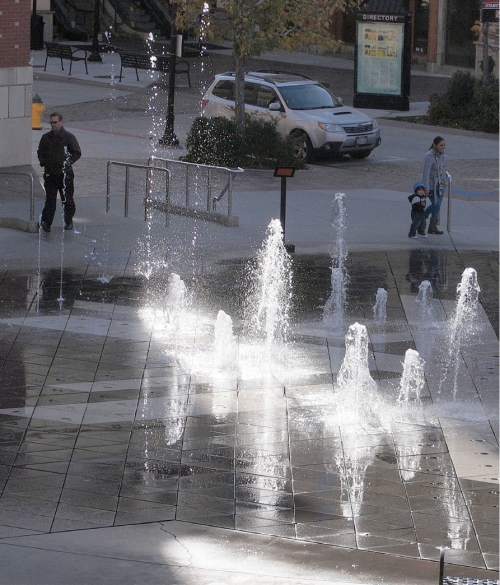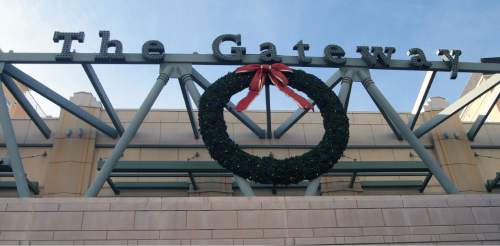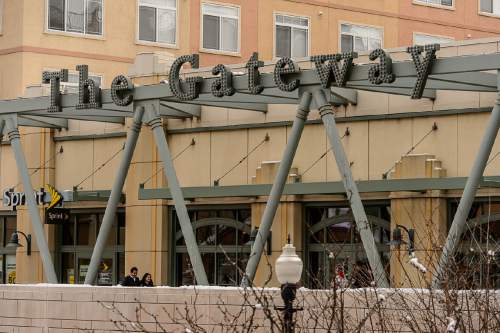This is an archived article that was published on sltrib.com in 2016, and information in the article may be outdated. It is provided only for personal research purposes and may not be reprinted.
The Gateway mall in Salt Lake City is changing hands.
After months of negotiations, the Phoenix-based owner of nearly 50 open-air retail properties in Arizona, California, Texas and adjacent states moved Monday to complete its purchase of The Gateway's 623,205 square feet of retail space.
Vestar's acquisition has the potential to further remake the ailing mall on the western fringe of downtown into an entertainment-focused destination, coupled with marketing aimed at attracting young adults known as millennials.
The company said it planned to invest $30 million to revitalize and rebrand The Gateway, with new national and regional retailers, high-end eateries and a series of near-daily events.
In a statement issued Monday, company President David Larcher said Vestar officials "are confident in our vision to create a landmark destination where visitors, residents and employees will be excited to shop, dine, celebrate and engage."
The purchase price on Gateway's retail areas was not immediately disclosed.
Also buying into the 15-year-old mall with Vestar is the national real-estate investment firm Oaktree Capital Management, which together with Hines bought four of The Gateway's six office buildings in 2013. (The Salt Lake Tribune newsroom is located in a Gateway office building.)
"Our goal," said Mark Jacobs, managing director of Oaktree, "is to create a social hub that offers an unbeatable retail mix, full range of dining options and broad array of entertainment."
"The best," Jacobs told one Gateway tenant, "is yet to come."
The new owners were reportedly scheduling a series of meetings with various Salt Lake City community members in the coming weeks to detail their vision.
Former Gateway owner Retail Properties of America (RPAI), an Oak Brook, Ill.-based shopping center chain, made brief mention of the sale after markets closed Monday in the wake of months of telling Wall Street analysts it was eager to unload the property.
The Gateway sale had been complicated by a $100 million loan RPAI took out using the mall as collateral. In 2014, RPAI slashed Gateway's reported value to $75 million, down from a high of $163 million in 2010.
The Gateway loan was transferred for special servicing by creditors last year as Vestar was negotiating to buy the mall.
In a release Monday, publicly traded RPAI said its Gateway exit was "a lender-directed sale in full satisfaction of its mortgage debt of approximately $94.4 million."
The sale to Vestar comes as the mall's tenant spaces are less than 76 percent occupied, down from 96 percent when RPAI first bought the site in 2005.
As part of a national realignment of its holdings, RPAI reported Jan. 7 that it sold nearly $516 million in assets in 2015 — including its only other Utah property, Red Cliffs Mall in St. George — while buying other retail sites worth a total of $463 million.
Built by Utah developer The Boyer Co. with taxpayer backing and opened in 2001, The Gateway lifestyle center has faced tough competition for customers and retail tenants since the 2012 debut of nearby City Creek Center, a luxury mall built by The Church of Jesus Christ of Latter-day Saints on Main Street.
Though it has retained top anchors — such as Dick's Sporting Goods, Barnes & Noble, Discovery Gateway and a Megaplex movie theater — other major Gateway tenants, including the Apple Store, have jumped to City Creek, leaving the older mall to struggle with declining occupancy and less foot traffic.
The Gateway's popularity has also been affected by the homeless, drawn to several nearby shelters and service providers.
Vestar is a privately held company with nearly 24 million square feet of retail space under its ownership and management, most of it located in Arizona and California. It is known in many markets for managing properties as community hubs that combine retail and entertainment outlets while appealing to millennials, a growing demographic in urban Utah.
Founded in 1989, Vestar spent nearly $1 billion in the past three years buying shopping centers in Southwestern states.
Twitter: @TonySemerad


